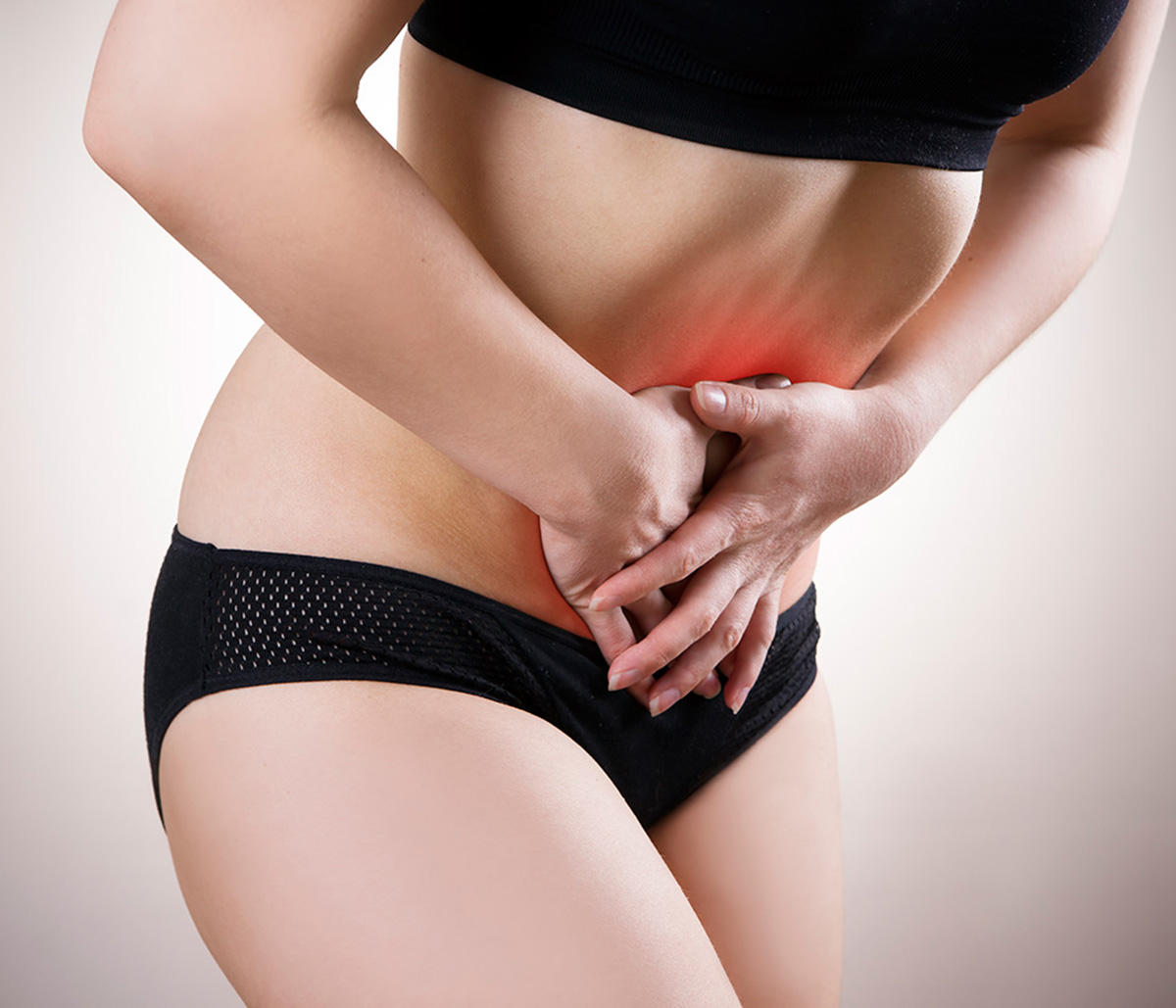Lower abdominal pain causes and treatments explained by Lake Forest urogynecologist
Lower abdominal pain or pain in the pelvic area is very common in women and can have several causes. When pain strikes, it can be difficult to determine why it is happening and what to do about it. Below, Dr. Sanjay Gandhi, urogynecologist in Lake Forest, IL, explains common gynecological causes of lower abdominal and pelvic pain in women and the treatment options that are available.

Common lower abdominal pain causes and treatments
If you are experiencing pain in the area between your belly button and groin, it is likely related to one of the organs in the area. There are several types of issues with your reproductive organs that can lead to acute or chronic pain in the lower abdominal area, including:
- Menstrual pain – Many women experience cramping and pain for at least one or a few days of their menstrual cycle. Using over-the-counter medications like ibuprofen or naproxen can help alleviate the pain, as well as using a heating pad. For more severe cases of menstrual pain, it is recommended that you see your doctor because it may indicate an underlying issue such as endometriosis.
- Pelvic prolapse – This occurs when your pelvic floor is unable to support the pelvic structures due to age, constipation, obesity, or other issues, and you may experience the sensation of pelvic pressure, bulging, or fullness in your pelvic area. Several other factors can contribute to pelvic prolapse, and depending on the cause and severity, Dr. Gandhi provides several treatment options to help treat the condition. These include hormonal therapies, making certain lifestyle changes, inserting a pessary device to support the organs, and pelvic reconstruction surgery.
- Endometriosis – This condition occurs when the endometrium, the tissue that normally lines the inside the uterus, begins growing in areas outside of the uterus. It can cause mild to severe pain depending on its location and intensity, and frequently worsens when a woman’s period starts because the tissue is responsive to hormones. In some women, the use of hormonal contraceptives or other oral therapies can help relieve symptoms, whereas other women may need a more intensive intervention such as surgical removal of the tissue.
- Ovarian cysts – With each menstrual cycle, small cysts form and fade away. However, if an ovary does not release an egg, the follicle containing the egg may fill with fluid and cause a cyst. Ovarian cysts can cause pelvic pain, pressure, and bloating, and typically go away on their own. However, some cysts may require surgery or can burst and bleed and necessitate medical treatment.
Talk to your doctor
There are many other conditions that can lead to pelvic and lower abdominal pain and while some issues go away on their own, others can be life-threatening. As such, it is important to see your doctor if you are suffering from either acute, sharp pains or chronic pain in your abdominal area for a diagnosis. At Partners in Pelvic Health North Shore Urogynecology, Dr. Sanjay Gandhi is equipped with state-of-the-art equipment and has the expertise and experience to diagnose your condition and treat it effectively so you can get out of pain and back to your normal daily life.
If you are experiencing lower abdominal pain, call our Lake Forest, IL office today at (844) 327-1188 or visit us online to schedule an appointment.
Back to Pelvic Prolapse Page






